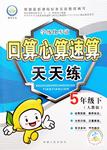Some time ago I discovered that one of my chairs had a broken leg. I didn't think there would be any difficulty in getting it repaired, as there are a lot of antique (古董) shops near my home. So I left home one morning carrying the chair with me. I went into the first shop expecting a friendly reception(接待). I was quite wrong. The man wouldn't even look at my chair.
The second shop, though slightly more polite, was just the same, and the third and the fourth -- so I decided that my
approach must be wrong.
I entered the fifth shop with a plan in my mind. I placed the chair on the floor and said to the shopkeeper, "Would you like to buy a chair?"
He looked it over carefully and said,- "Yes, not a bad chair. How much do you want for it, sir?"
“Twenty pounds," I said.
“OK," he said, "I'll give you twenty pounds."
“It's got a slightly broken leg," I said.
‘'Yes, I saw that, it's nothing."
Everything was going according to my plan and l was getting excited. "What will you do with it?" I asked.
“Oh, it will be easy to sell once the repair is done."
“I'll buy it," I said.
“What do you mean? You've just sold it to me," he said.
"Yes, I know but I've changed my mind. I am sorry. I'll give you twenty-seven pounds for it."
“You must be crazy," he said. Then, suddenly
the penny dropped. “I know what you want. You want me to repair your chair."
“You're right," I said. "And what would you have done if I had walked in and said, 'Would you repair this chair for me?"'
“I wouldn't have agreed to do it," he said. "We don't do repairs, not enough money in it and too much trouble. But I'II repair this for you. Shall we say for five pounds?" He was a very nice man and was greatly amused by the whole thing.
小题1:We can learn from the text that in the first shop the writer_______.
| A.was rather impolite | B.was warmly received |
| C.asked the shopkeeper to buy his chair | D.asked the shopkeeper to repair his chair |
小题2: The underlined word "approach" in the second paragraph means_______.
| A.plan for dealing with things | B.way of doing things |
| C.idea of repairing things | D.decision to sell things |
小题3:The expression "the penny dropped" in the last paragraph means the shopkeeper_______.
| A.changed his mind | B.accepted the offer |
| C.saw the writer's purpose | D.decided to help the writer |
小题4:How much did the writer pay?
小题5:From the text, we can learn that the writer was_______.
| A.honest | B.careful | C.smart | D.funny |



 学练快车道口算心算速算天天练系列答案
学练快车道口算心算速算天天练系列答案